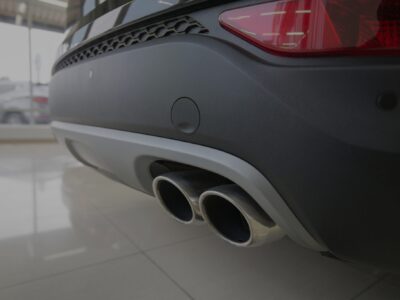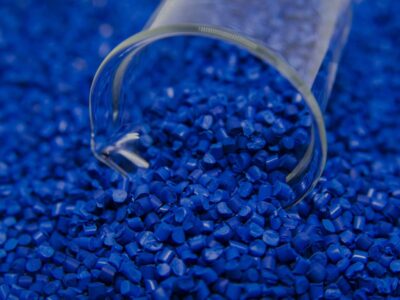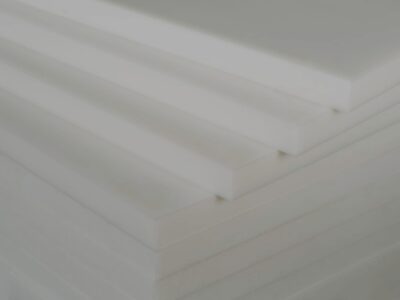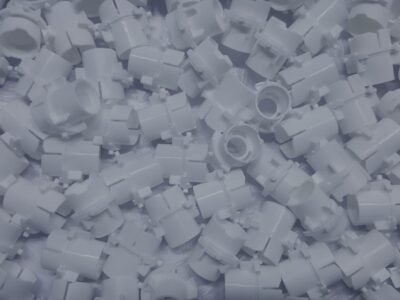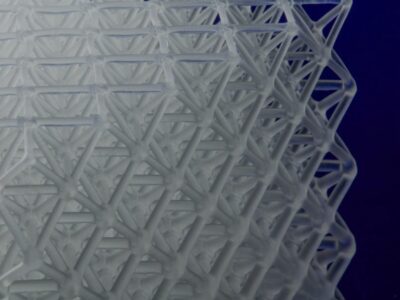Originally published on fastradius.com on July 29, 2020
Many parts for automotive applications are mission-critical, and thus need to be constructed of durable, reliable, and often corrosion- and heat-resistant plastics. Automotive manufacturers also must meet a strict set of industry regulations, and the materials they select for manufacturing purposes must undergo what’s known as the material qualification process to ensure they are both durable and compliant.
Selecting the right material is even more important when considering that certain materials can yield significant energy and cost savings. As an example, applying lighter materials can reduce the overall weight of a vehicle, thereby improving its fuel efficiency. On the other hand, the wrong material can greatly increase costs and energy expenditure.
For all of these reasons, it’s vital that product teams make the right choice when selecting materials for automotive parts. Oftentimes, that material is a plastic.
Plastics commonly used in automotive manufacturing
Because plastics are lightweight and affordable, they’re an incredibly attractive option for automotive manufacturers today. As fuel efficiency becomes an increasing concern for consumers, any decrease in weight can translate directly into a boost in sales. What’s more, plastics are corrosion-resistant, long-lasting, malleable, and offer greater design freedom than metals.
The following plastics are among the most likely to be used in car manufacturing, though polypropylene, polyurethane, and polyvinyl chloride are by far the three most commonly-used.
Polypropylene
By far the most common plastic in automobiles, polypropylene is a highly durable polymer produced from propylene. Because of its durability and chemical resistance, polypropylene is used in everything from bumpers to cable insulation to carpet fibers.
Polyurethane
Polyurethane, which can take on both soft and hard forms, is exceptionally resistant to solvents, radiation, and environmental wear. Because of these qualities, polyurethane is well-suited for numerous applications, including tires, suspension brushes, seating, and more.
Polyvinyl chloride
Polyvinyl chloride makes up approximately 16% of all plastic in a typical modern vehicle. Boasting flexibility, heat resistance, and low lead content, polyvinyl chloride is well-suited for a huge range of auto parts, particularly because it can also take on both soft or hard forms.
ABS
Acrylonitrile butadiene styrene (ABS), a polymer of styrene and acrylonitrile, has a shiny, tough exterior but very high durability and heat resistance. ABS is most typically used to produce dashboards and wheel covers.
Nylon 6/6
A general-use nylon, nylon 6/6 promises high wear resistance and can be used to make parts via both molding and extrusion processes. It’s favored for its strength, low cost, and stability, and it’s commonly found in weatherproof coatings.
Polycarbonate
Polycarbonate provides an exceptional combination of rigidity, hardness, and durability. Because of these qualities, as well as its resistance to heat and weathering, polycarbonate is a go-to material in the manufacturing of car bumpers.
Polyethylene
Offering high-impact resilience, low density, and durability, polyethylene is particularly suitable for applications requiring moisture resistance at a relatively low price point. Typically, polyethylene is used for glass-reinforced car bodies and electrical insulation.
Polyoxymethylene
Highly rigid and stable, polyoxymethylene is most often used to fabricate interior and exterior trims, fuel system parts, and small gears. It’s notably resistant to cold, chemicals, and fuel.
The right plastic, the right application
Choosing the right material for an automotive application can make all the difference between building a durable, fuel-efficient vehicle or not.
To ensure you’re always choosing the best possible material for each part, consider partnering with a full-service manufacturing shop like SyBridge. Our team of experienced engineers and designers are prepared to provide comprehensive support and advisory services through every stage of your automotive design and manufacturing process. If you’re ready to get started on your next project, contact us today.
